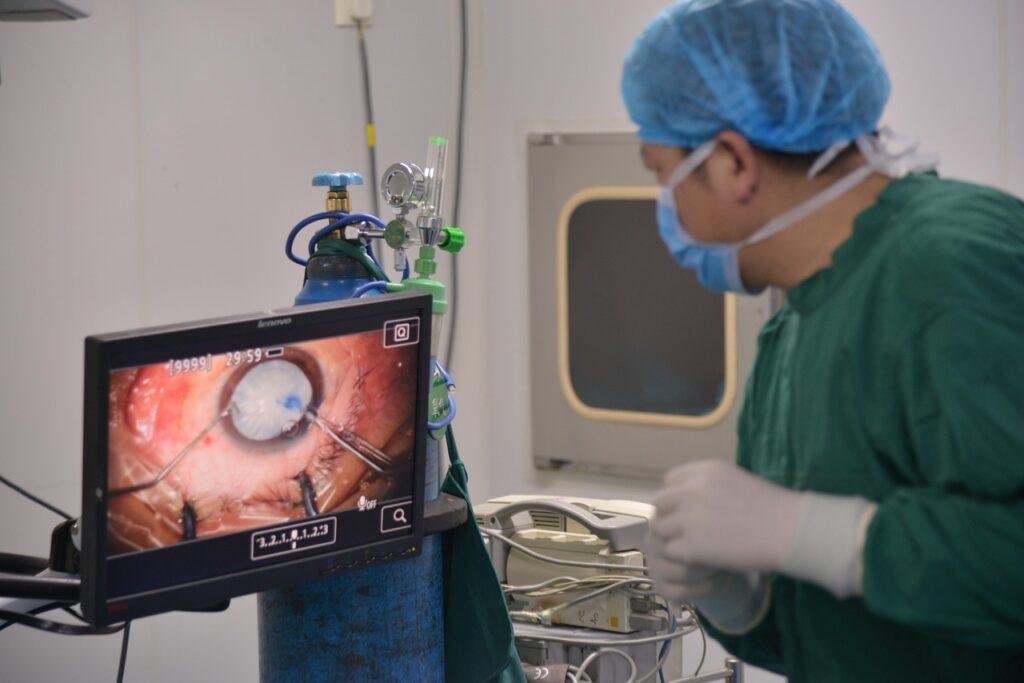An Introduction
One often used and quite successful operation to restore vision by substituting an artificial lens for a foggy one is cataract surgery. Every year, millions of people have this operation and see noticeably better. This book addresses all you need to know—from preparation to recovery and possible complications—should you or a loved one be considering cataract surgery.

Describes Cataract Surgery:
During cataract surgery, the natural lens of the eye is removed when it clouds and replaced with a clear synthetic lens. Usually under local anesthetic, this surgery takes less than an hour.
Why Is Cataract Surgery Required?
When proteins in the lens of an eye break down, cataracts result from fuzzy vision, glare sensitivity, and nighttime difficulty seeing. Although the most often occurring cause is age, congenital cataracts can also afflict children.
The only approach to eliminate cataracts is surgery. For adults, it’s advised when vision loss interferes with regular tasks such reading or driving. Many times, children with cataracts need quick surgery to stop problems with eyesight development.
Getting ready for cataract surgery
Enough preparation guarantees a seamless operation and recuperation. Expect this:
Consultation before surgery
After measuring your eye, your ophthalmologist will go over lens choices—monofocal, multifocal, or toric.
- If you wear contacts, you might have to quit a few days before surgery.
- Given local anesthetic, you can eat and drink normally before the procedure.
- Set up someone to drive you home following surgery.
During cataract surgery, what occurs?
Under a hospital or outpatient clinic, the surgeon uses these guidelines:
- Anesthesia numbs the eye either by injection or ocular drops.
- Drops widen the pupil to improve access.
- A little incision is made, and ultrasonic breaks up the cloudiness of the lens (phacoemulsification).
- Artificial lens insertion calls for a clear intraocular lens (IOL).
- Recovery: Usually not stitches are required; the eye heals on its own.
The whole operation takes twenty to forty-five minutes.
Healing Following Cataract Surgery
While most patients heal fast, follow these instructions for best recovery:
Instantaneous aftercare
- Dilation drops cause blurry vision, which is common for few hours.
- Though little discomfort could arise, it should pass in a few days.
- About four weeks, use prescription anti-inflammatory and antibacterial eye drops.
Do’s and do not’s following surgery
✅ Do:
- Nightwear an eye shield to avoid rubbing.
- Lower light sensitivity with sunglasses.
- Should necessary, take over-the-counter painkillers (like paracetamol).
❌ Do not:
- Press on your eye or rub.
- Till your vision steadies, keep driving.
- Swim or spend at least two weeks staring at water.
Potential Adversaries of Cataract Surgery
Although rare, problems could consist in:
- Posterior Capsule Opacification (PCO) – Cloudiness months/years later (corrected with a rapid laser treatment).
- Retinal detachment calls for quick attention.
- Infection or inflammation: under control with medicine.
When should one ask for help?
See an optologist if:
- Vision starts to blur or fog.
- You have redness or ongoing eye pain.
🔮 Get emergency treatment if:
Your vision shows flashes, floaters, or a dark curtain—indices of retinal detachment.
Advice for Enhanced Recovery Speed
- Use the eye drops and care advice provided by your surgeon.
- Steer clear of hard work for at least one week.
- Use reading glasses; your prescription can vary.
- Wait four to six weeks for stable vision before purchasing new glasses.
See NHS Cataract Surgery or American Academy of Ophthalmology for further information on eye condition.
Last thoughts
Safe, life-changing surgery with a great success rate is cataract surgery. Most patients see better within days by following post-operative care recommendations. See an ophthalmologist to discuss your choices if you are suffering from cataract symptoms.
View Wikipedia’s Cataract Surgery article for more reading.
Would you want individualized recommendations on cataract operation?
Leave comments with your questions! 👆
Read More Blogs: Surgery Related Blogs
